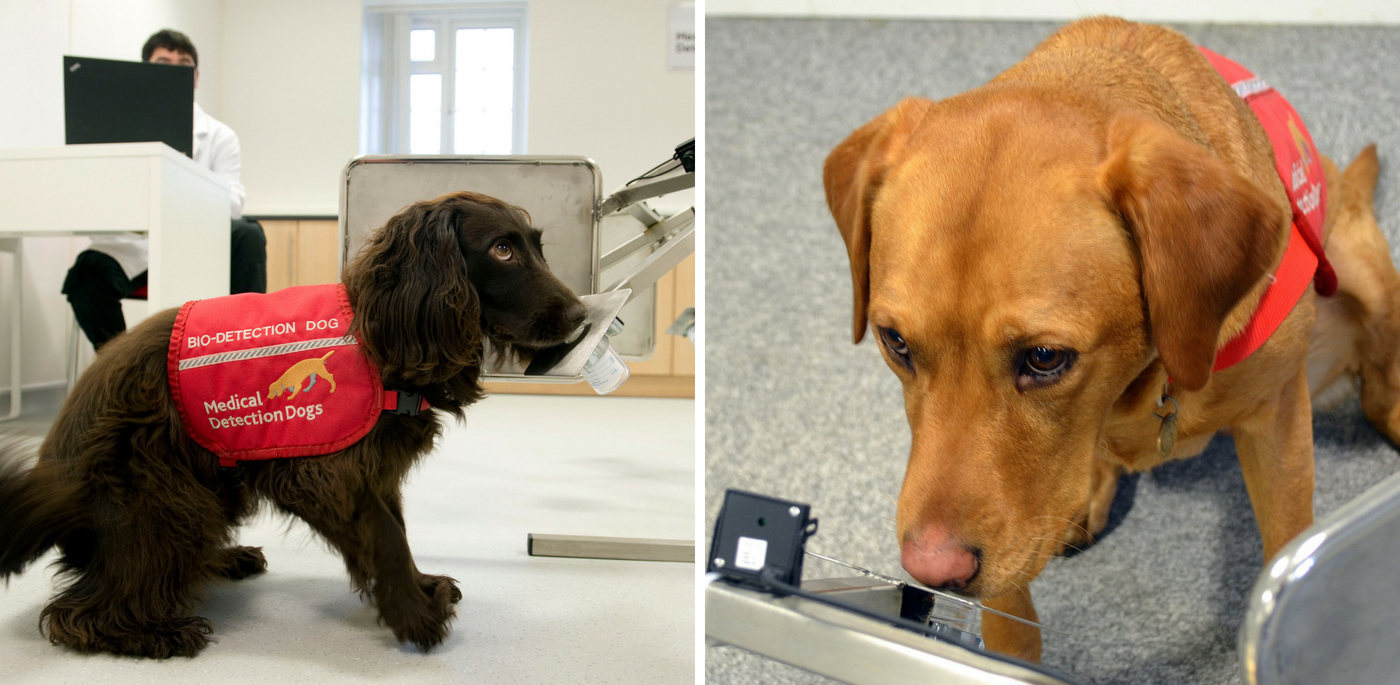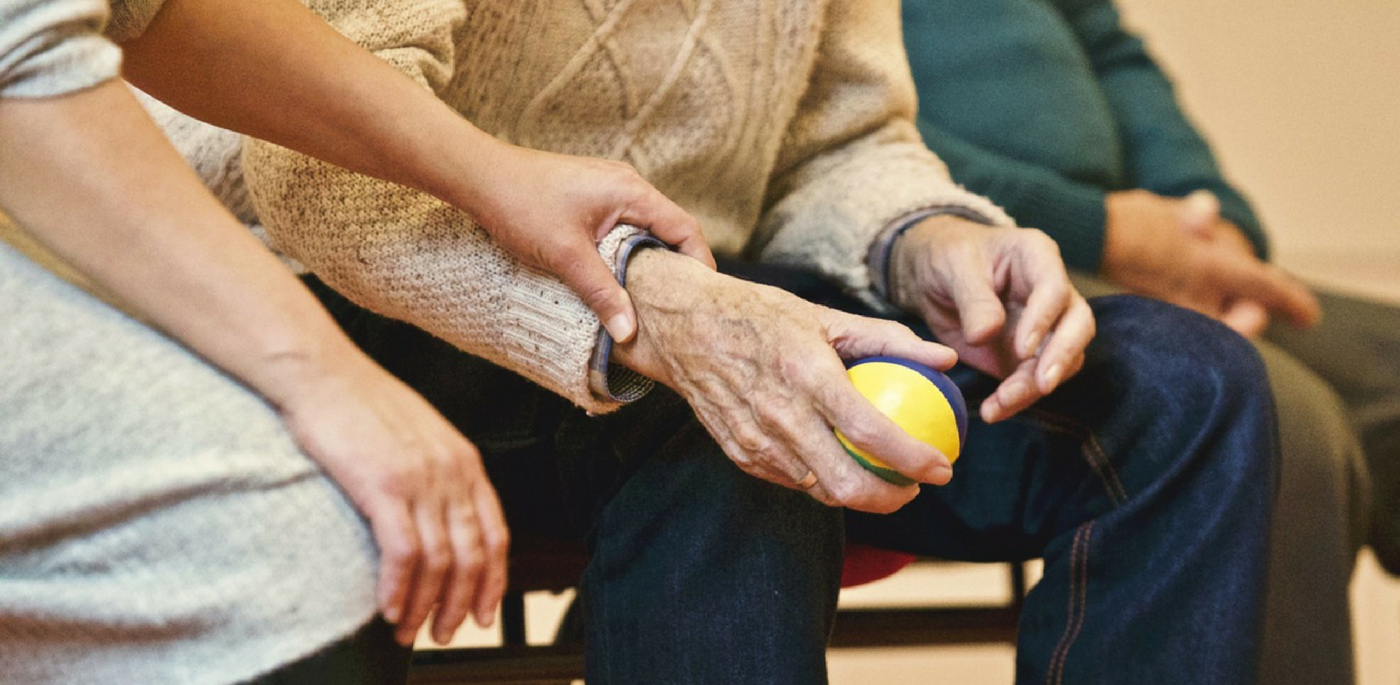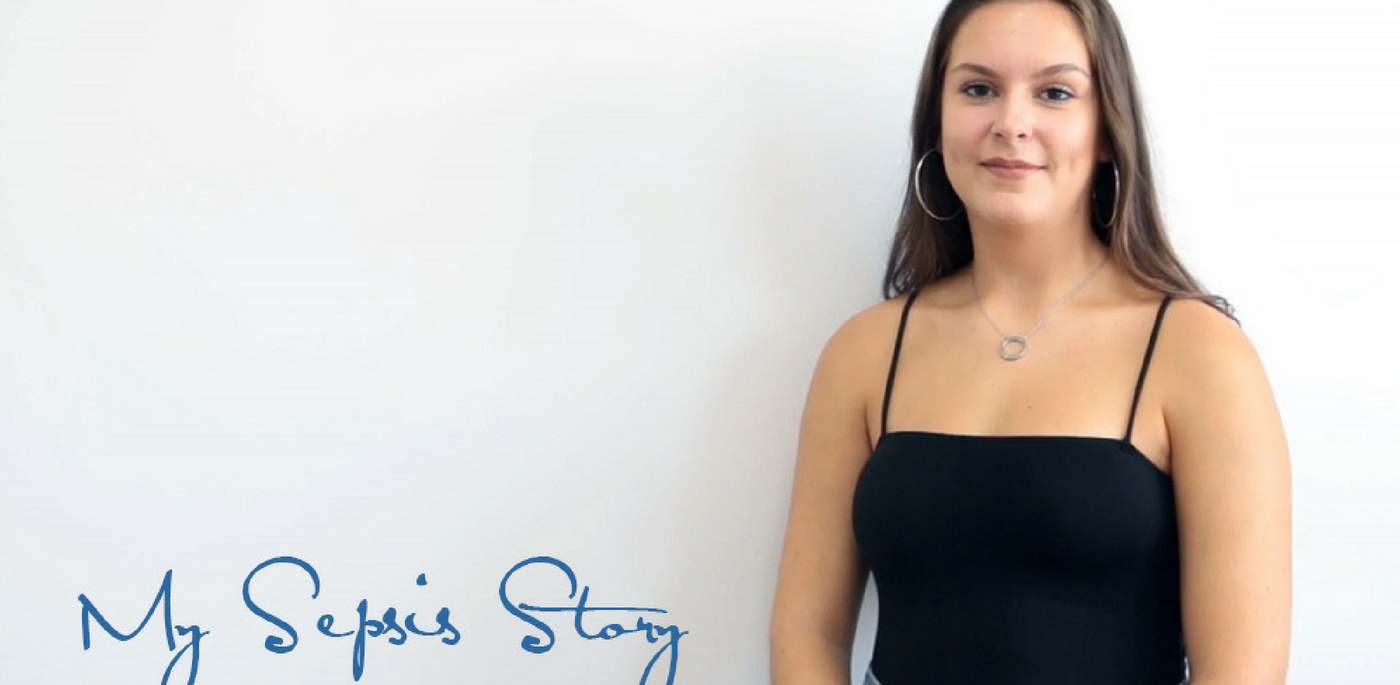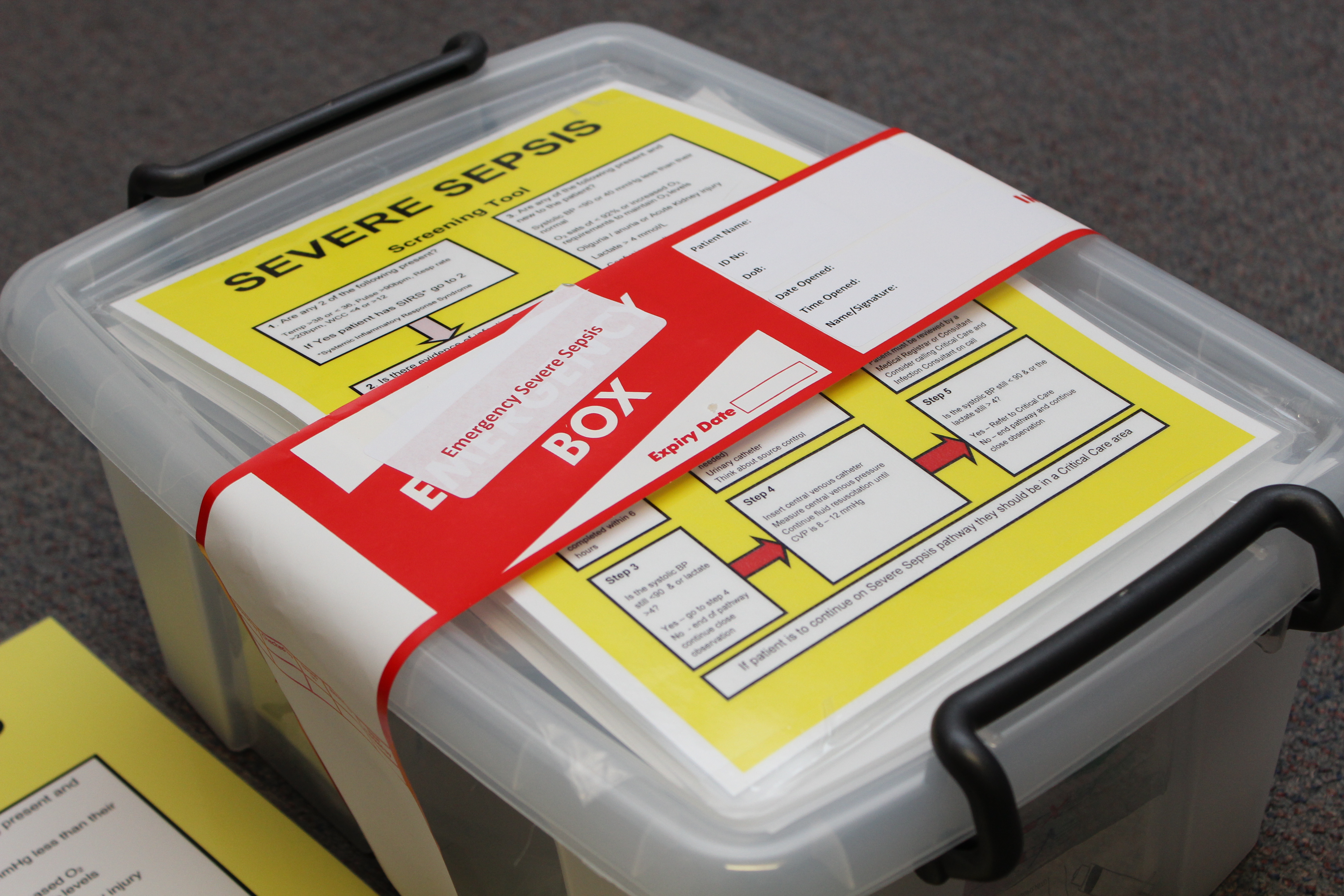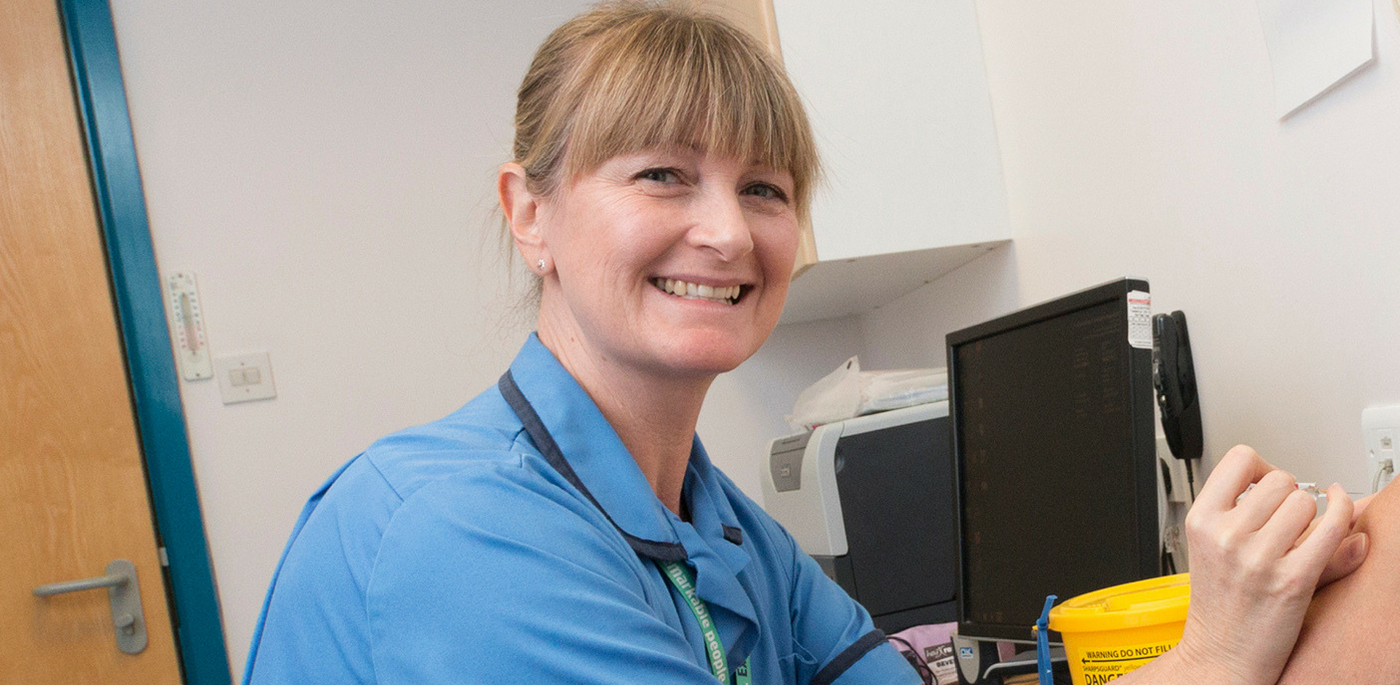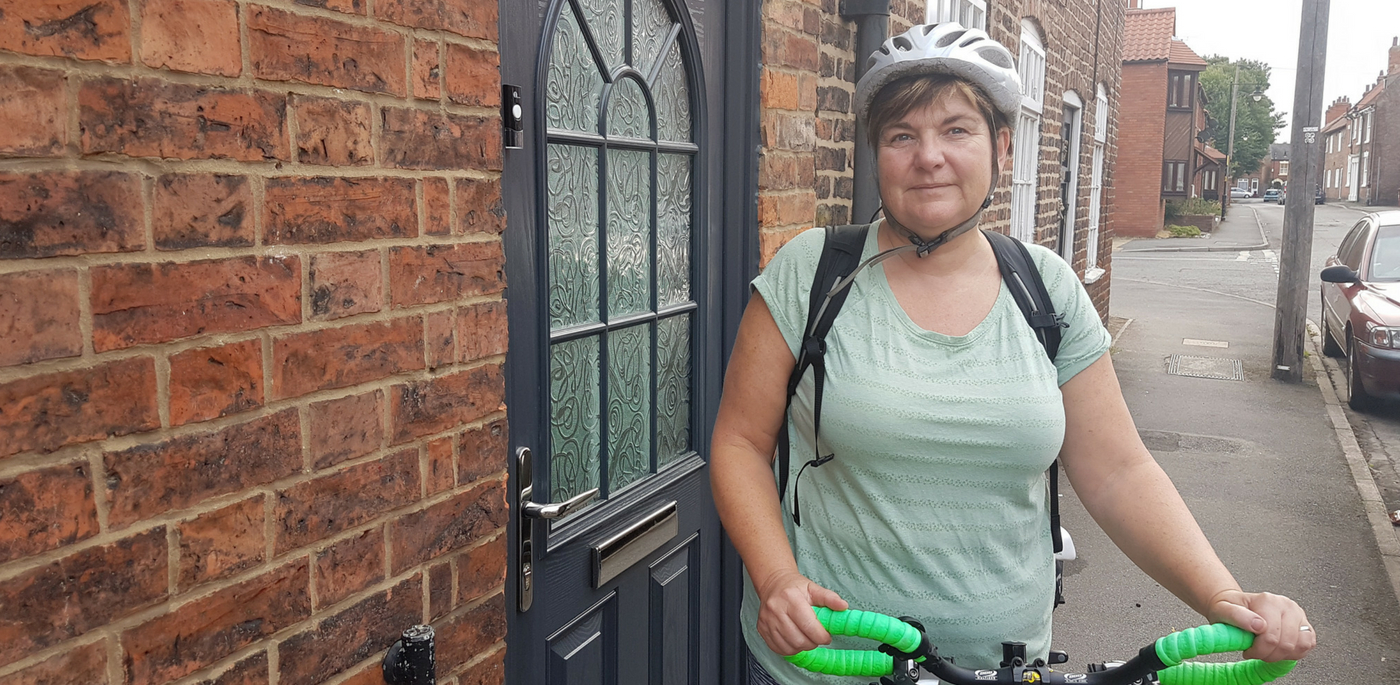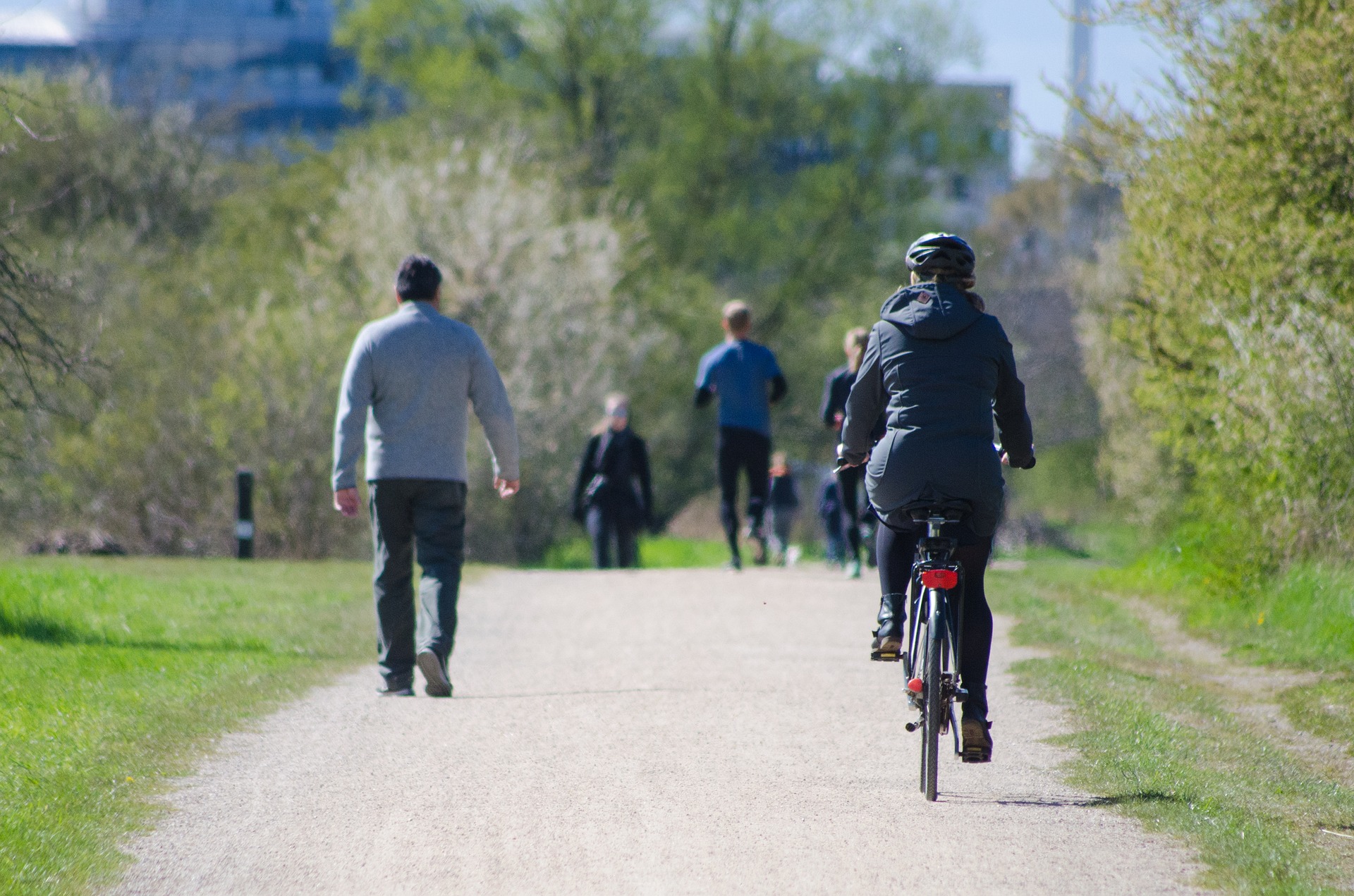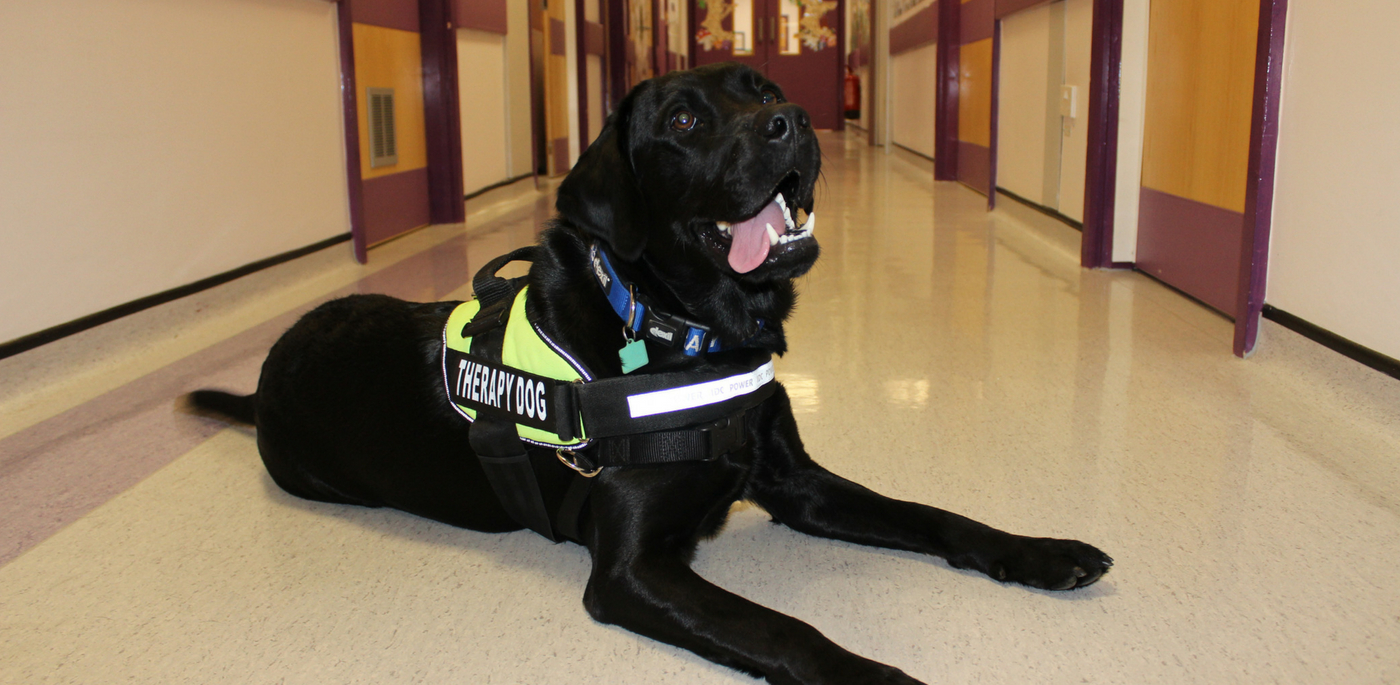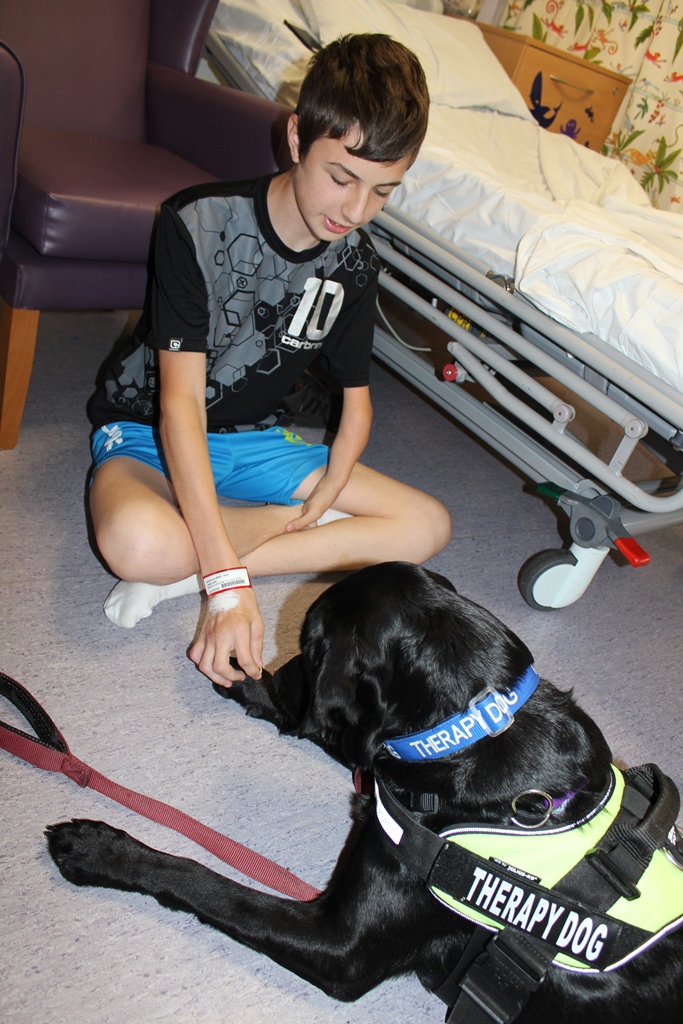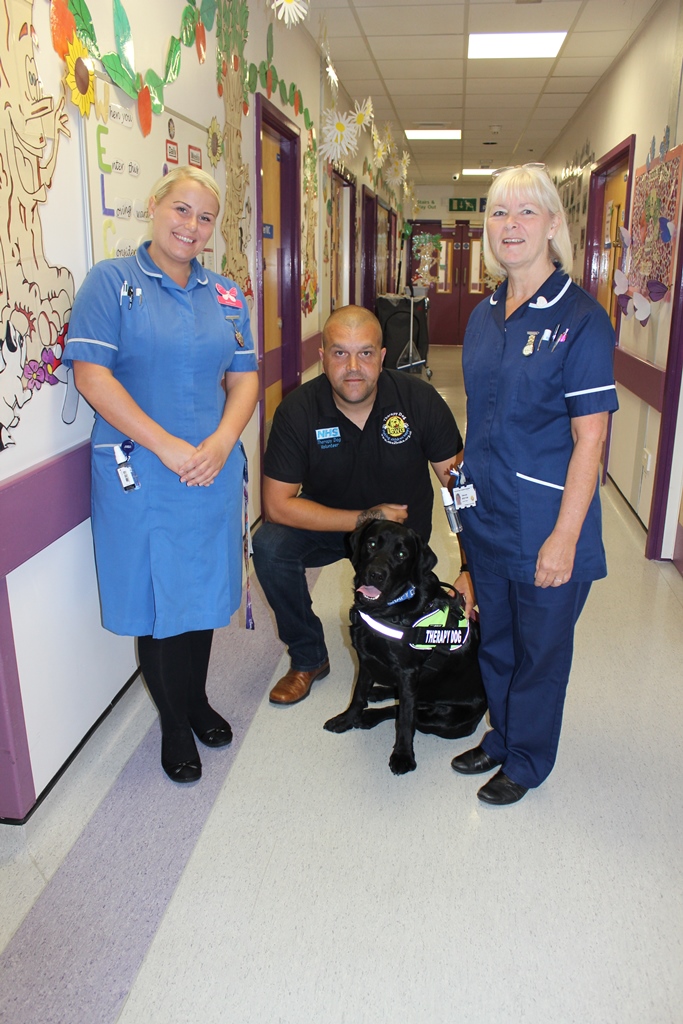A hospital team in Hull is taking part in a trial to train dogs to detect cancer in patients.
Researchers from Hull University Teaching Hospitals NHS Trust are taking part in the three-year study to train dogs to diagnose colorectal cancer.
Dogs are renowned for their acute sense of smell and it has been known for centuries that some conditions and diseases emit characteristic odours.
Cancer cells release small amounts of volatile organic compounds (VOCs) and the trust is working with the Medical Detection Dogs charity to train dogs to detect these compounds in urine and faecal samples.
If the specific smells relating to bowel cancer can be identified, an “electronic nose” could be developed in the future, allowing for faster identification and treatment for cancer patients.
Iain Hunter, Consultant in Colorectal Surgery, said: “The early detection of bowel cancer dramatically improves the effectiveness of treatment in achieving a long-term cure for this unfortunately common condition.
“The current methods used to screen for early bowel cancer invite people over 60 to test their own bowel motions for the presence of invisible amounts of blood, using special sampling kits.
“While this is a good screening test, it still doesn’t detect all cancers.”
He said people with abnormal test results are invited for a colonoscopy but only half will have cancer or precancerous polyps and the uptake is low, with just 60 per cent of people eligible for screening in Yorkshire and Humber carrying out the screening.
“This may be related to the inconvenience of having to test your own poo,” said Mr Hunter. “Finding new ways to screen for bowel cancer that are more accurate and less inconvenient, such as a urine test, may reduce the number of patients having a normal and effectively unnecessary colonoscopy and increase the number of people taking part in screening.”
Around 2,000 patients are being recruited for the study over the next three years and samples will be taken from patients aged 18 and over who have been referred to the trust’s colorectal colonoscopy clinics to see if they have cancer.
Research Nurse Mandie Bulmer said: “If we have a test that says there is a high probability this patient has or hasn’t cancer, we would know which patients would need to be seen more quickly. In patients coming for follow-up checks, we could see whether there was an increased chance the cancer has or hasn’t returned.”
Colonoscopy is used to determine the presence of colorectal cancer and patient samples will be divided into those with and those without bowel cancer.
The samples will be frozen before being transported from Castle Hill Hospital to the charity’s lab in Milton Keynes where they will be used to train the dogs.
The dogs will initially be trained to detect colorectal cancer by using samples from both patients with and without the disease.
Once training has been completed, the study will then move into the testing phase. Samples from participants already diagnosed with colorectal cancer, non-malignant disease or are free from colonic disease will be used to measure the dog’s ability to detect cancer.

